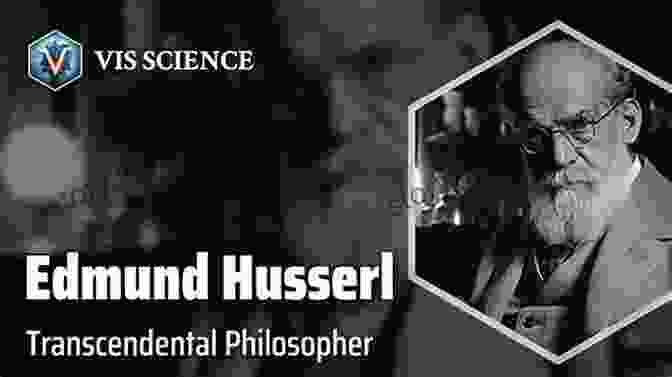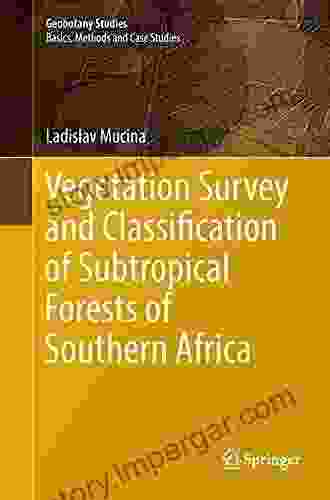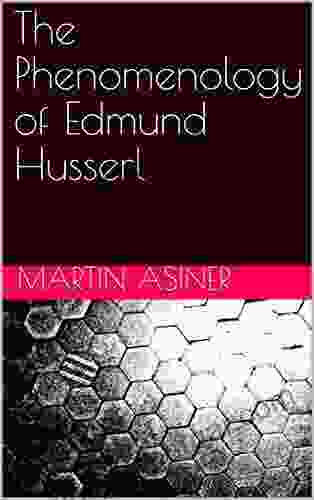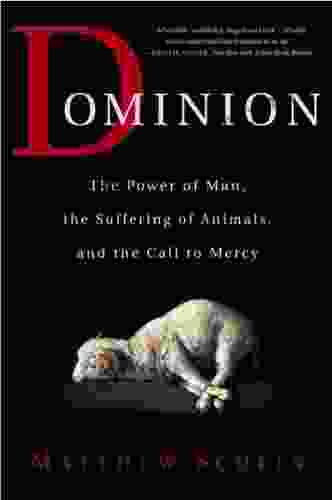The Phenomenology Of Edmund Husserl: A Comprehensive Guide to Unraveling the Essence of Consciousness

4 out of 5
| Language | : | English |
| File size | : | 1930 KB |
| Text-to-Speech | : | Enabled |
| Screen Reader | : | Supported |
| Enhanced typesetting | : | Enabled |
| Print length | : | 26 pages |
| Lending | : | Enabled |

In the realm of philosophy, few thinkers have grappled with the enigmatic nature of consciousness as profoundly as Edmund Husserl. As the founder of phenomenology, Husserl embarked on a daring intellectual odyssey to unveil the essence of human experience and its relationship to the world we inhabit.
The Birth of Phenomenology
Husserl's philosophical journey began in the late 19th century, amidst the intellectual ferment of the Vienna Circle. Dissatisfied with the prevailing currents of positivism and naturalism, Husserl sought to establish a rigorous and scientific approach to the study of consciousness.
Rejecting the notion that consciousness is merely a product of physical processes, Husserl posited that it possesses an irreducible autonomy that requires its own distinct mode of investigation. This led him to develop phenomenology, a method that involves the meticulous description and analysis of conscious experience, free from any preconceptions or assumptions.
Bracketing and the Transcendental Ego
At the heart of Husserl's phenomenology lies the concept of bracketing, also known as the epoche. This technique involves suspending all judgments and beliefs about the external world, thereby isolating the pure essence of consciousness.
Through bracketing, Husserl sought to uncover the fundamental structures of consciousness, which he referred to as the transcendental ego. The transcendental ego is not a personal or individual entity, but rather a universal and timeless consciousness that underlies all human experience.
Intentionality and the Lifeworld
One of the key tenets of Husserl's phenomenology is the concept of intentionality. According to Husserl, consciousness is always directed towards something, whether it be an object, an event, or even a thought. This inherent directedness of consciousness is what gives meaning and structure to our experience.
Husserl also emphasized the importance of the lifeworld, the everyday realm of experience that constitutes the backdrop of our conscious lives. The lifeworld is not a mere collection of isolated objects, but rather a dynamic and interconnected web of meanings and relationships.
Phenomenology and the Human Condition
Husserl's phenomenology has profound implications for our understanding of the human condition. By revealing the centrality of consciousness, phenomenology challenges the traditional view of human beings as passive recipients of external stimuli. Instead, it emphasizes the active and creative role that consciousness plays in shaping our perception and experience.
Moreover, Husserl's work has inspired a wide range of disciplines, including psychology, sociology, and literary theory. Phenomenology provides a valuable tool for understanding the lived experiences of individuals and for exploring the complexities of social and cultural phenomena.
Delving into Husserl's Masterpiece
To fully appreciate the depth and richness of Husserl's phenomenology, it is essential to delve into his seminal work, "The Phenomenology of Internal Time-Consciousness." Originally published in 1893, this groundbreaking treatise established the foundations of phenomenology and remains a cornerstone of philosophical scholarship.
In this masterpiece, Husserl meticulously analyzes the structure of consciousness as it unfolds over time. He argues that consciousness is not a static entity, but rather a dynamic process that is constantly evolving and transforming.
Through his meticulous observations, Husserl uncovers the fundamental principles of time-consciousness, including the distinction between objective and subjective time, the role of memory and anticipation, and the nature of the present moment.
Edmund Husserl's phenomenology is a profound and transformative philosophical movement that has revolutionized our understanding of consciousness, the lifeworld, and the human condition. By providing a rigorous and methodical approach to the study of experience, phenomenology has opened up new avenues for exploring the nature of reality and the complexities of human existence.
For those seeking a deeper understanding of consciousness and its significance for our lives, "The Phenomenology of Internal Time-Consciousness" is an indispensable resource. Husserl's groundbreaking work invites us on a journey of intellectual exploration, challenging us to question our assumptions and to rediscover the richness and depth of our own conscious experiences.
4 out of 5
| Language | : | English |
| File size | : | 1930 KB |
| Text-to-Speech | : | Enabled |
| Screen Reader | : | Supported |
| Enhanced typesetting | : | Enabled |
| Print length | : | 26 pages |
| Lending | : | Enabled |
Do you want to contribute by writing guest posts on this blog?
Please contact us and send us a resume of previous articles that you have written.
 Book
Book Novel
Novel Page
Page Chapter
Chapter Text
Text Story
Story Genre
Genre Reader
Reader Library
Library Paperback
Paperback E-book
E-book Magazine
Magazine Newspaper
Newspaper Paragraph
Paragraph Sentence
Sentence Bookmark
Bookmark Shelf
Shelf Glossary
Glossary Bibliography
Bibliography Foreword
Foreword Preface
Preface Synopsis
Synopsis Annotation
Annotation Footnote
Footnote Manuscript
Manuscript Scroll
Scroll Codex
Codex Tome
Tome Bestseller
Bestseller Classics
Classics Library card
Library card Narrative
Narrative Biography
Biography Autobiography
Autobiography Memoir
Memoir Reference
Reference Encyclopedia
Encyclopedia Marsha Hunter
Marsha Hunter Maria Youtman
Maria Youtman William Brabam
William Brabam Richard A Posner
Richard A Posner Matthew B Crawford
Matthew B Crawford Martha A Field
Martha A Field Mark Radcliffe
Mark Radcliffe Martin W Bowman
Martin W Bowman Tracy Griffith
Tracy Griffith William Thomas Hamilton
William Thomas Hamilton Matthew Ratcliffe
Matthew Ratcliffe Bruce Henderson
Bruce Henderson Christopher Waldrep
Christopher Waldrep Michael A Caldarone
Michael A Caldarone Medha Michika
Medha Michika Scholastica Bassey
Scholastica Bassey Nicole C Nelson
Nicole C Nelson Robert Bryce
Robert Bryce Marion G Crain
Marion G Crain Mary H Manhein
Mary H Manhein
Light bulbAdvertise smarter! Our strategic ad space ensures maximum exposure. Reserve your spot today!

 Samuel Taylor ColeridgeUnveiling the Secrets of Contract Bridge: Master the Art of Multiplex Two...
Samuel Taylor ColeridgeUnveiling the Secrets of Contract Bridge: Master the Art of Multiplex Two... Natsume SōsekiFollow ·5.7k
Natsume SōsekiFollow ·5.7k Ralph TurnerFollow ·12.2k
Ralph TurnerFollow ·12.2k Doug PriceFollow ·12k
Doug PriceFollow ·12k Isaiah PowellFollow ·13.3k
Isaiah PowellFollow ·13.3k Theo CoxFollow ·19.2k
Theo CoxFollow ·19.2k Pete BlairFollow ·11.9k
Pete BlairFollow ·11.9k Clarence MitchellFollow ·3.3k
Clarence MitchellFollow ·3.3k Charles BukowskiFollow ·19.4k
Charles BukowskiFollow ·19.4k

 Roberto Bolaño
Roberto BolañoUnveiling the Beauty and History of the Medici Iris: A...
In the realm of...

 Theodore Mitchell
Theodore MitchellImproving Gut Health in Poultry: Unlocking the Path to...
In the ever-evolving field of...

 Victor Hugo
Victor HugoPersonalized Medicine with a Nanochemistry Twist:...
The future of healthcare...

 George Martin
George MartinA Year Of Wine: Perfect Pairings Great Buys And What To...
## Year of Wine: An Epic Journey Through the...

 Tom Hayes
Tom HayesDelve into the Enigmatic World of Southern Africa's...
Embark on a captivating journey through the...
4 out of 5
| Language | : | English |
| File size | : | 1930 KB |
| Text-to-Speech | : | Enabled |
| Screen Reader | : | Supported |
| Enhanced typesetting | : | Enabled |
| Print length | : | 26 pages |
| Lending | : | Enabled |












